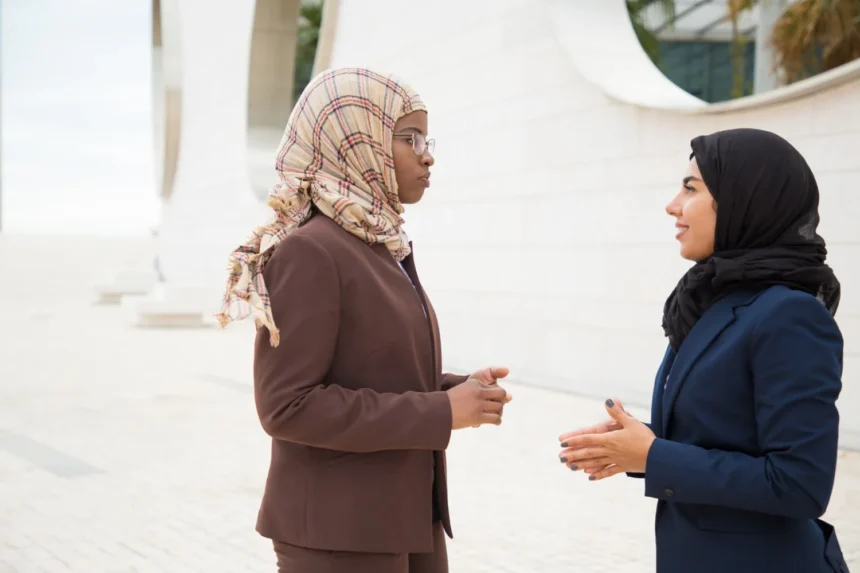Anxiety is one of the widespread emotional problems in the modern-day, hustle-bustle environment. It can be an impact of any financial pressure, indifference towards the future or any personal difficulties, but anxiety can get deep into our minds and spiritual being. Islamic values are a way out of their problems and, simultaneously, lead to personal health and a more significant sense of unity with Allah (SWT) to Muslims.
Islamic Perspectives of Understanding Anxiety
Psychologically, anxiety refers to perpetual worrying, nervousness, or fear. Although these feelings are normal, permanent anxiety may disrupt the everyday routine. The Prophets can be considered as the confirmation of emotional distress because of their stories which are accepted in Islam. As an example, Prophet Musa (AS) was afraid when he was before the pharaoh and Prophet Yunus (AS) appealed to Allah in the darkness of the belly of the whale. These examples indicate that even the most favorite servants of Allah had moments of pain in their hearts, and they turned to God.
Tawakkul as a Foundational concept
Along with the prayer, one of the best weapons against anxiety is the concept of Tawakkul, the total trust towards Allah. The Quran has reminded us, and whoever trusts in Allah then Allah will be sufficient to him. (Surah At-Talaq 65:3). Having a sense of calm may be achieved with the belief of the power that Allah currently wields and that wisdom exists within each suffer. The load of anxious care tends to grow lighter when we forgo our efforts to do everything in our own ways, and detachively put our trust in the design of Allah.
Daily Prayer and Religious Habit
It is not solely a religious obligation but also a spiritual and emotional mooring too. The five-time daily prayers are silent times that Muslims reconnect to the Creator. Prayer is a time where we stop, take additional breaths and get back on track spiritually. Reading verses such as these ones: Indeed, with hardship is ease (Surah Ash-Sharh 94:6) can bring immediate relief. Personal duas can also enable us to talk directly to Allah with prayers seeking peace, strength and patience.
Dhikr and Mindful Memory of Allah
Dhikr or God remembrance is a kind of spiritual lotion to a troubled heart. The recital of such phrases as SubhanAllah (Glory be to Allah), Alhamdulillah (All praise is due to Allah), and La ilaha illa Allah (There is no god but Allah) will also ground the mind. This type of conscious memory is settling on the nervous system and coheres our thinking with opinion and trusting it is relatively the same impact of a mindfulness practice in contemporary treatment.
The Imploring of Community and Support
Islam embraces close-knit ties with the community highly. Anxiety may be heightened by loneliness and emotional security may be found in a caring group setting. To relieve this feeling, it is possible to check in with a close friend or attend regional study circles and be a part of online Islamic support groups. Muhammad (SAW) stated, a believer to the believer is a building whose various sections are supportive to each other. That is why emotional and communal support is valuable in Islam.
Attitude to Gratitude and Positive Thinking (Shukr)
Acts such as shukr i.e., gratitude can transform our mood to a great extent. Islam guides us that we should learn to look at the good things that we possess instead of what we do not have. The Prophet (SAW) said, do not look at (people) that are higher than you but look at the ones that are lower than you as this is likely to make you appreciate what Allah has given you. Such an attitude will allow exchanging anxiety with contentment and appreciation.
Integration Of Faith And Professional Assistance
Islam invokes the pursuit of halal and good treatment. Visiting a Muslim counselor or therapist is not against religion in any way; on the contrary, it is an addition to spiritual healing. Resources like a Muslim therapist directory can help individuals find faith-sensitive professionals who understand Islamic values. Integrating Islamic coping skills and professional therapy results in the creation of an adequate response to anxiety.
Conclusion
It is not a sign of insecure faith, it is a component of humanity. Islam offers a caring and comprehensive way to emotional healing through remembrance, prayer, trusting in Allah, and seeking of support. Islamic principles enable Muslims to become strong, optimistic and peaceful in their worst moments.










 /home/u448362301/domains/theexpotab.com/public_html/wp-content/themes/foxiz/templates/popup.php on line 167
/home/u448362301/domains/theexpotab.com/public_html/wp-content/themes/foxiz/templates/popup.php on line 167